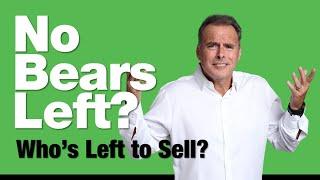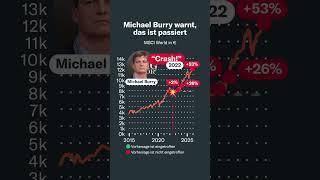| [Join YAPSS Membership, For Early Access to New Videos] https://www.youtube.com/channel/UCpzAAXa2cvyEnfc7rurcCcQ/join In this episode, Warren Buffett and Charlie Munger was asked to give some book recommendations. In this episode, you’ll learn: #CharlieMunger #WarrenBuffett #BerkshireHathaway [Transcript] AUDIENCE MEMBER 00:09 One is for Mr. Munger in our never-ending effort to have the Munger Book Club surpass the Oprah Book Club. I was wondering if you could make some recommendations. CHARLIE MUNGER 00:24 AUDIENCE MEMBER 00:25 And I’m wondering if you feel that that’s going on with the tobacco industry now or if that is a larger threat to that industry, larger and permanent threat. CHARLIE MUNGER 00:56 [Robert] Hagstrom sent me chapters of his latest book on Warren Buffett called, “The Buffett Portfolio.” And I didn’t read them because I thought his first book was a respectable book, but didn’t contribute too much to human knowledge, and — (Laughter) (Inaudible) sent me the second book, a full version, and I read it and I was flabbergasted to find it not only very well written, but a considerable contribution to the synthesis of human thought on the investment process. And I would recommend that all of you buy a copy of Hagstrom’s second Buffett book. I notice the airport was heavily promoting it. It’s called, “The Warren Buffett Portfolio.” It doesn’t pick any stocks for you, but it does illuminate how the investment process really works, if you think about it rationally. Another book that I liked very much this year was “Titan”, the biography of the original John D. Rockefeller. That’s one of the best business biographies I have ever read. And it’s a very interesting family story, too. That is was just a wonderful, wonderful book. And I don’t know anybody who’s read it who hasn’t enjoyed it. So I would certainly recommend that latest biography of John D. Rockefeller the first. The third book is sort of a revisitation of the subject matter of the book I recommended a year or two ago called “Guns, Germs, and Steel,” which was a physiologist’s view of the economic history of man. And it was a wonderful book. And much of that same territory has now been covered by an emeritus history professor from Harvard, who just knows way more economics and science than is common for a history professor. And that gives him better insight. And his book is a takeoff in title on Adam Smith, and the title is, “The Wealth and Poverty of Nations.” And the guy’s name is [David] Landes. So I would heartily recommend those 3 books. Now what was the third question? WARREN BUFFETT 03:29 CHARLIE MUNGER 03:31 I don’t know about Warren, but I think the legislative threat to tobacco is serious, and I haven’t the faintest idea of how to predict it. WARREN BUFFETT 03:42 Nobody was against pharmaceuticals. They were just — had different ideas about maybe pricing, and distribution, and all of that. But tobacco’s a different story. I mean, tobacco companies — well, you can figure it out for yourself. The — in terms of books, I would recommend — many of you have may have read it, but this goes back more than a year, but I would — if you haven’t read Katharine Graham’s autobiography [“Personal History”], it is one terrific book. It’s a very incredibly honest book. And it’s a fascinating story. I mean, it’s a life that’s seen all kinds of things in politics and in business and in government. So I — it’s a great read. A book that came out just in the last few months in the investment world that I would certainly recommend to everybody is “Common Sense on Mutual Funds,” by Jack Bogle. Jack is an honest guy, and he knows the business. And if mutual fund investors listen to him, they would save billions and billions of dollars a year. And he tells it exactly like it is. So I — he asked me for a blurb on the book, and I was delighted to provide it. Let’s go to zone 6, please. |
Tags:






































